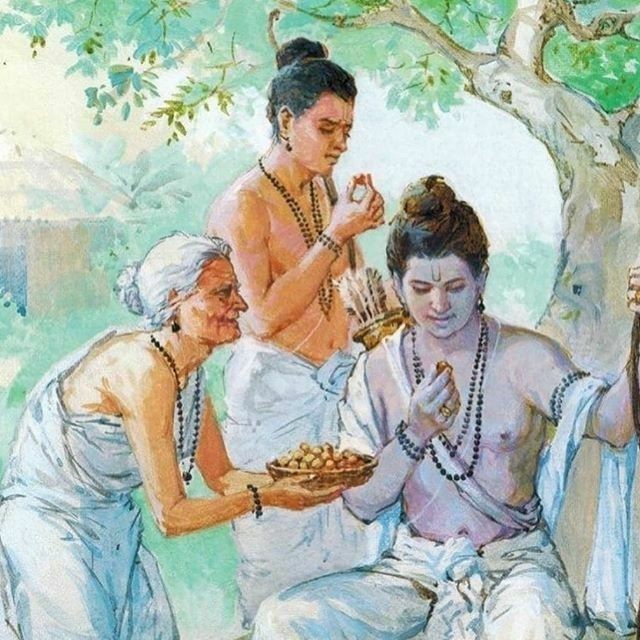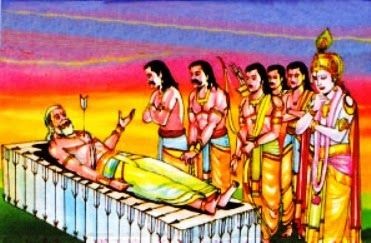People normally find a hundred excuses for Not performing,
doing Spiritual practices like Pūjā, or
Visiting the Mandirā.
‘I am unwell’,
‘I cannot afford rituals’,
‘I have no time’,
‘I do not know the chants’,
(1/8)
#ŚivaMānasaPūjā
doing Spiritual practices like Pūjā, or
Visiting the Mandirā.
‘I am unwell’,
‘I cannot afford rituals’,
‘I have no time’,
‘I do not know the chants’,
(1/8)
#ŚivaMānasaPūjā

there is no place at home where I can worship’
& So on.
Normally,
people feel Pūjā is a mechanical action,
Which has to be ‘got over & done with’ as part of one’s daily routine (Dinacaryā).
People say,
‘pūjā kar ḍālī’ (Hindi),
or
‘pūjā karī nākhī’ (Gujarati),
& So on.
Normally,
people feel Pūjā is a mechanical action,
Which has to be ‘got over & done with’ as part of one’s daily routine (Dinacaryā).
People say,
‘pūjā kar ḍālī’ (Hindi),
or
‘pūjā karī nākhī’ (Gujarati),
which indicates, that one has finished it with a sense of relief that it is over, rather than with a sense of fulfilment of having done it well.
Our attitude should be ‘Pūjā kar lī’ ~ completed (with good feelings derived from it).
When one Matures, One realizes that Pūjā
Our attitude should be ‘Pūjā kar lī’ ~ completed (with good feelings derived from it).
When one Matures, One realizes that Pūjā

is a continuous process, which happens all through the day,
in & through every Action of Ours.
It does Not remain a particular act done for a particular period of time.
What is d Use of staying in close proximity with a great Master & not gaining any of his Virtues?
in & through every Action of Ours.
It does Not remain a particular act done for a particular period of time.
What is d Use of staying in close proximity with a great Master & not gaining any of his Virtues?
Pūjā is a form of Upāsanā – a Spiritual practice.
मम साधर्म्यमागताः।
(गीता-१४.२)
When we practise regularly, We imbibe the divine Virtues of Our altar of Worship,
&
Ultimately become One with the Worshipped.
This is the Highest Result of Pūjā.
To directly Worship Paramātmā,
मम साधर्म्यमागताः।
(गीता-१४.२)
When we practise regularly, We imbibe the divine Virtues of Our altar of Worship,
&
Ultimately become One with the Worshipped.
This is the Highest Result of Pūjā.
To directly Worship Paramātmā,

when He appears in front of Us, is a Joy Unparalleled
& for most of Us, an Unimaginable Occurance.
Rare ones, like Śabarī, enjoyed such Bliss.
For Us,
However,
The ritualistic physical worship is done by invoking the Paramātmā in an Murti or a picture.
& for most of Us, an Unimaginable Occurance.
Rare ones, like Śabarī, enjoyed such Bliss.
For Us,
However,
The ritualistic physical worship is done by invoking the Paramātmā in an Murti or a picture.

Since our Mind is gross, it is easier for us to appreciate the Paramātmā with a form.
We must, However,
Understand that what we worship is Not the Murti, but the ideal behind the Murti
Also, Paramātmā is Not ‘Only in the Murti’, But ‘Also in the Murti'.
We must, However,
Understand that what we worship is Not the Murti, but the ideal behind the Murti
Also, Paramātmā is Not ‘Only in the Murti’, But ‘Also in the Murti'.

He is all-pervading & His Glory is to be seen in all.
यो यो यां यां तनुं भक्तः श्रद्धयार्चितुिमच्छति। तस्य तस्याचलां श्रद्धां तामेव विदधाम्यहम्॥ (गीता-७.२१)
"Đ Paramātmā fortifies our Faith in whichever Form, We desire to worship Him".
ll ॐ तत् सत् ll
।। जयतु सनातन धर्मः।।🙏
यो यो यां यां तनुं भक्तः श्रद्धयार्चितुिमच्छति। तस्य तस्याचलां श्रद्धां तामेव विदधाम्यहम्॥ (गीता-७.२१)
"Đ Paramātmā fortifies our Faith in whichever Form, We desire to worship Him".
ll ॐ तत् सत् ll
।। जयतु सनातन धर्मः।।🙏

• • •
Missing some Tweet in this thread? You can try to
force a refresh









